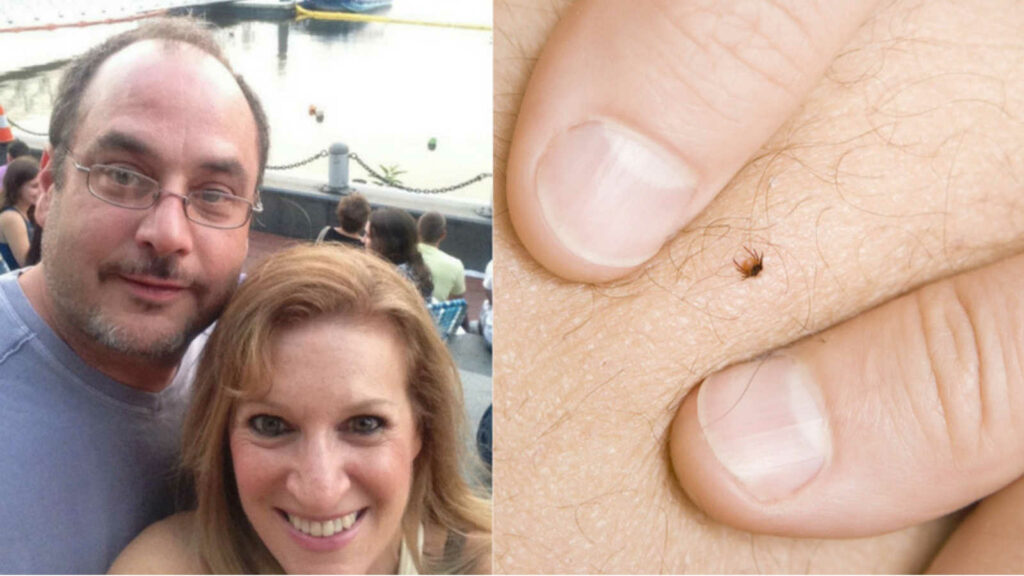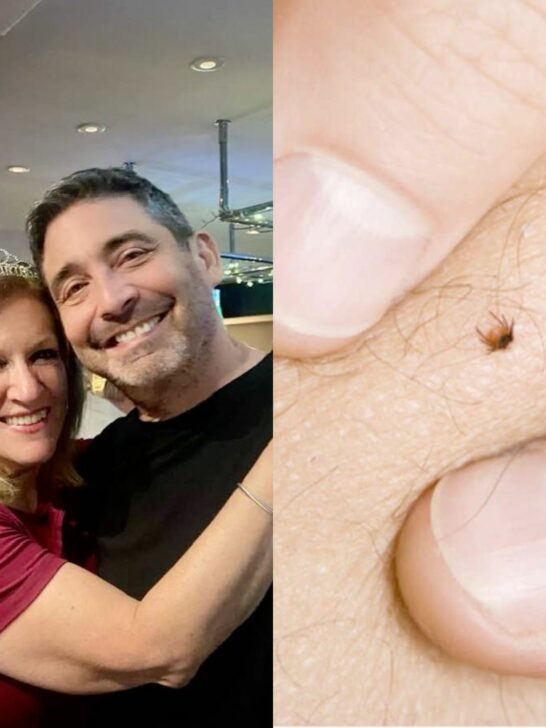A sudden illness changed everything for James, a healthy and devoted 50-year-old husband and father. What began as a fever quickly turned into a fatal infection caused by Babesia a rare tick-borne parasite. This story is shared to honor his memory and raise awareness for a disease that often goes undiagnosed.

I was sitting in a hotel room that my late husband, who was 50 years old he purchased with his Marriott points to take our daughter back to college.” Nearly a month later since his unexpected passing, and being at his former school has been quite challenging. He guided us with directions and reservations, and also inspired us with his inspired excitement for the campus he loved. I feel incredibly fortunate to have a wonderful family that not only joined me on this trip but has also supported me and my children in every way imaginable. Nonetheless, it does not lessen the emotions I experience and I usually thinks that my children will feel it same, when we return to the numerous locations he mentioned and shared with us.
My son is in a junior in high school, lacks a father to instruct him on driving, to discuss girls with him, to assist in selecting a college or to see his success of all these milestones. My husband prioritized his family above all he selflessly did everything for us something we often overlooked, as most individuals do. With his absence, we feel confused, scared and isolated.
The most painful detail in narrative is the cause of his death. He was fit and improving his health through diet and exercise but then suddenly he came down with a fever. I have known him for 26 years, and he’s been ill only twice, so it was significant for him to develop a fever. This fever carried on for a few days with no additional symptoms, prompting him to visit urgent care. He had been experiencing intense sweating so severe that he needed to change his clothes and bedding.

Urgent care analyzed his urine and identified a ‘severe kidney infection,’ then provided him with antibiotics. The fever and sweating subsided, but he still felt weak and unwell.
A few days later, he returned home from work and mentioned that he was fatigued and not feeling well. He fell asleep thirty minutes after getting home and woke up once to inform me that he had thrown up.
The following day, he went to his job and called to say he felt terrible and was heading to the emergency room.
My daughter and I encountered him there, and his skin and eyes were entirely yellow (jaundiced). Following the completion of several tests, they accepted him. They conducted additional tests without a diagnosis, and during that time, his health was worsening.
In less than 12 hours post-admission, he transitioned from joking and conversing to being in the ICU on a ventilator. And yet no diagnosis. Every test result was negative, and his liver and kidneys were failing. The physician informed me that he was experiencing septic shock, likely due to alcohol consumption. After spending three days in the ICU, and with his liver bilirubin increasing, he was transferred to a different hospital that focused on liver dysfunction.

The examinations and inquiries resumed as the physicians maintained his stability. They placed him on dialysis and periodically roused him to ensure his brain was working. Following two days in this hospital, he exhibited indications of respiratory distress and his outlook was grim.
At last, that evening, a physician approached me with a glimmer of hope they had reached a diagnosis! He stated that his blood showed positive results for Babesia, a tick-borne disease that rapidly targets red blood cells. Since my husband had no spleen, it is a highly serious infection. They promptly administered the appropriate antibiotic and transfused his blood to exchange the infected cells for healthy ones.
The next day he exhibited slight indications of progress. His blood pressure stabilized and his breathing showed signs of improvement. The doctor informed me that while my husband was not in the clear, he remained hopeful.
I returned home feeling positive for the first time since we brought him to the ER six days earlier. My kids were thrilled to go the following day since we were confident he had made progress.
When the doctor phoned me at 4:30 a.m. asking me to go to the hospital, I was utterly stunned. My parents, mother-in-law, and I hurried to his bedside to be with him. His blood pressure was decreasing and his heart was failing. In just two hours, I saw my beautiful husband of 23 years die. Clearly, when a young person passes away, it is a tragedy. It’s obvious. However, this calamity was pointless. I lost the father of my kids due to a tick bite, and the resulting infection is not well recognized. Had the doctors diagnosed him one, two, or four days sooner, could he have survived? We will never find out.

My intention in writing this story is not to elicit sympathy but to increase awareness of this parasitic infection among more individuals. Particularly individuals who have lost their spleens or are otherwise immune-compromised. Had we been educated, it might have made a difference.
